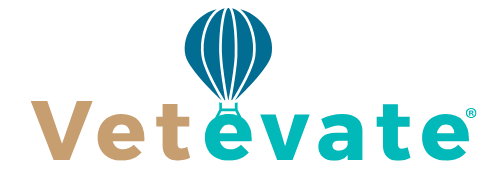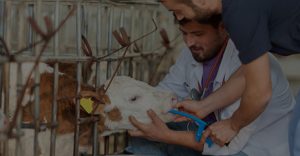There are a wide variety of technical positions and other positions available for those interested in working with animals. These positions can range from entry-level roles to highly specialized positions that require advanced degrees and training.
Below are 11 of the most common technical positions and other positions in the animal care industry:
#1—Veterinarian
Veterinarians are the most well-known technical position in the animal care industry. They are responsible for diagnosing and treating a wide range of animal health issues, from routine check-ups to more complex surgeries. Veterinarians may work in private practice, animal hospitals, research facilities, or government agencies.
#2—Veterinary technician
Veterinary technicians work alongside veterinarians to provide medical care to animals. They are responsible for performing a variety of tasks, such as taking X-rays, drawing blood, administering medication, and assisting with surgeries. To become a veterinary technician, you typically need to complete a two-year associate degree program.
#3—Animal trainer
Animal trainers work with animals to teach them new skills, behaviors, or tricks. They may work with dogs, horses, dolphins, or other animals. Animal trainers may work in zoos, aquariums, circuses, or even in Hollywood as animal actors.
#4—Animal behaviorist
Animal behaviorists study the behavior of animals to understand their social, communication, and problem-solving skills. They may work in zoos, research facilities, or private practice. To become an animal behaviorist, you typically need a degree in psychology, biology, or animal behavior.
#5—Animal control officer
Animal control officers are responsible for enforcing animal welfare laws and regulations. They may investigate reports of animal abuse or neglect, capture and transport stray animals, and educate the public about responsible pet ownership. Animal control officers may work for local government agencies or animal welfare organizations.
#6—Wildlife biologist
Wildlife biologists study the behavior, habitat, and ecology of wild animals. They may work in the field, collecting data on animal populations, or in a laboratory, analyzing samples and data. Wildlife biologists may work for government agencies, non-profit organizations, or research facilities.
#7—Zoologist
Zoologists study the anatomy, physiology, and behavior of animals, including their interactions with other species and their environment. They may work in zoos, aquariums, or research facilities. Zoologists may also be involved in conservation efforts to protect endangered species.
#8—Animal caretaker
Animal caretakers are responsible for providing basic care to animals, such as feeding, grooming, and cleaning. They may work in animal shelters, pet stores, or veterinary clinics. Animal caretakers may also assist with medical procedures or provide training and enrichment activities for animals.
#9—Pet sitter/dog walker
Pet sitters and dog walkers provide care and attention to pets while their owners are away. They may provide basic care, such as feeding and walking, or more specialized care, such as administering medication. Pet sitters and dog walkers may work independently or for a pet care company.
#10—Animal shelter worker
Animal shelter workers are responsible for caring for animals that have been abandoned or surrendered by their owners. They may clean and feed animals, provide medical care, and help with adoptions. Animal shelter workers may also provide education to the public about responsible pet ownership.
#11—Equine manager
Equine managers oversee the care and maintenance of horses. They may be responsible for feeding, grooming, and training horses, as well as managing stable staff and facilities. Equine managers may work at a private stable or a commercial operation, such as a racetrack or riding school.
Vetevate®: helping you find jobs
The Vetevate® website is a valuable resource for those seeking employment in the animal care industry. This website is dedicated to helping job seekers find positions in all areas of animal care, from entry-level roles to highly specialized technical positions.
Below are seven ways in which the Vetevate® website can help you find technical positions and other positions in the animal care industry:
#1—Comprehensive job listings
The Vetevate® website features a wide range of job listings in various animal care industries. This includes positions for veterinarians, veterinary technicians, animal trainers, behaviorists, wildlife biologists, and more. The job listings are regularly updated, so you can be sure to find the most current opportunities in your area.
#2—Easy job search
The Vetevate® website makes it easy to search for jobs based on your interests and qualifications. You can search for jobs by keyword, location, industry, or job title. This makes it simple to find jobs that match your skills and experience.
#3—Detailed job descriptions
The Vetevate® website provides detailed job descriptions for each position listed. This allows job seekers to learn about the job requirements, responsibilities, and qualifications needed for each position. This information can help job seekers decide if a particular position is a good fit for their skills and experience.
#4—Resume posting
The Vetevate® website allows job seekers to post their resumes for potential employers to view. This is a great way to get noticed by potential employers and increase your chances of being hired. Employers can search the resume database to find qualified candidates for open positions.
#5—Career resources
The Vetevate® website provides a range of career resources to help job seekers succeed in the animal care industry. This includes advice on resume writing, interviewing, and job search strategies. The website also features articles on industry trends and news, as well as tips on career development and advancement.
#6—Employer reviews
The Vetevate® website features reviews of employers in the animal care industry. This allows job seekers to learn about the company culture, work environment, and employee satisfaction before applying for a position. This information can help job seekers make informed decisions about where to apply for jobs.
#7—Job alerts
The Vetevate® website allows job seekers to sign up for job alerts based on their preferences. This means that you can receive notifications of new job openings that match your qualifications and interests. This feature can save you time and effort in your job search by notifying you of new opportunities as soon as they become available.
Overall, the Vetevate® website is an excellent resource for those seeking technical positions and other positions in the animal care industry. With its comprehensive job listings, easy job search, detailed job descriptions, resume posting, career resources, employer reviews, and job alerts, job seekers can find the right job for their skills and experience in the animal care industry.




